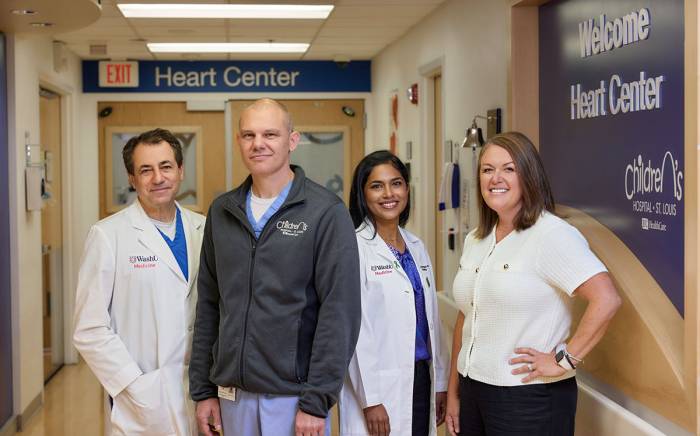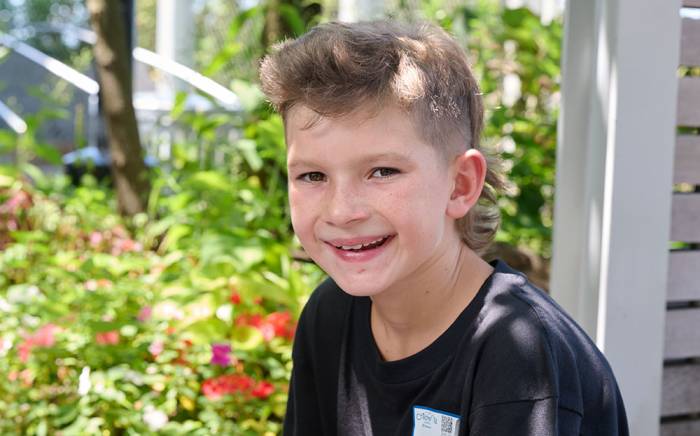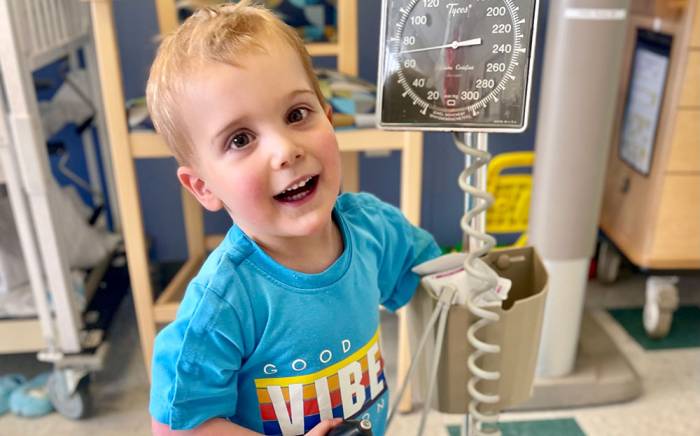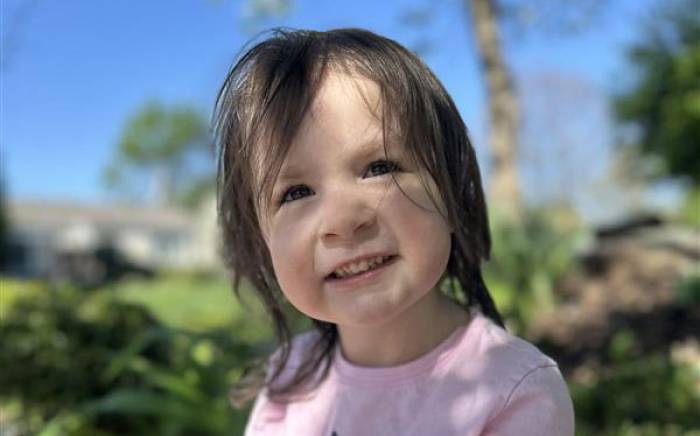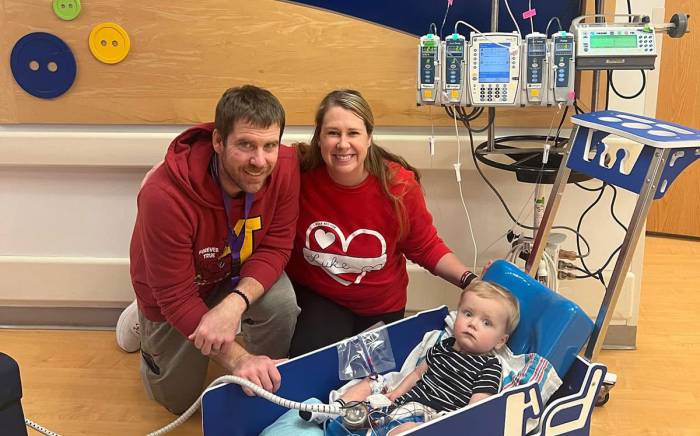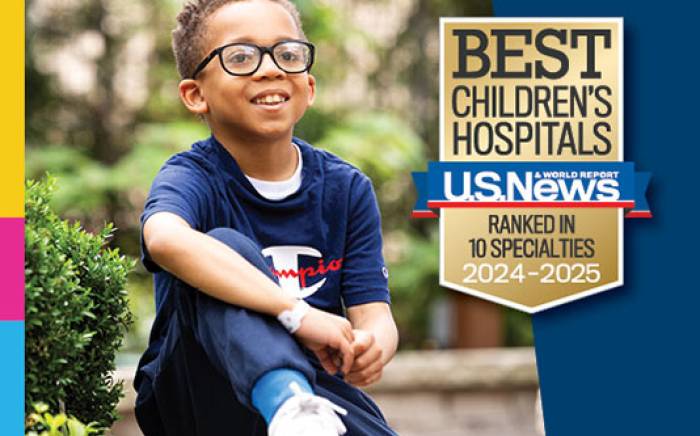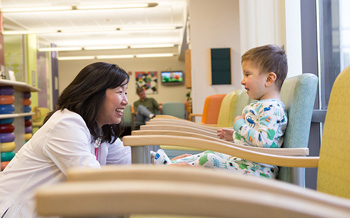
Children with congenital heart disease are now surviving and living longer lives because of advances in surgeries and medical management. What was not known before these children lived longer but has become increasingly evident over the past decade is that they are at risk for experiencing neurodevelopmental delays and disabilities. Multiple factors may be responsible for this risk.
“Prenatally, there is increasing evidence that the brain development of a baby with a congenital heart defect is different than what normally occurs in utero. Even at 39 weeks gestation, the brains of babies with severe heart defects are several weeks behind in maturity than babies without heart problems,” says Washington University physician Caroline K. Lee, MD, pediatric cardiologist and director of fetal cardiology in the St. Louis Children’s and Washington University Heart Center. “Part of this may have to do with the different patterns of blood flow to the fetal brain when heart defects are present. In addition, brain imaging in newborns with heart defects shows a high incidence of white matter injury, even before any cardiac surgical intervention.”
Once the babies are born, multiple other factors may contribute to developmental delays, among them:
- Below-normal oxygen levels for extended periods of time
- Intraoperative support using cardiopulmonary bypass, hypothermia and circulatory arrest
- Perioperative hypotension and hemodynamic instability
- Extended sedation, mechanical ventilation and hospital stays that preclude normal interactions and stimulation
Recognizing that young patients with congenital heart disease needed help beyond what is provided by pediatric cardiology, three years ago Dr. Lee established the Cardiac Neurodevelopmental Clinic at the Heart Center. One of only a few such clinics in the country, its goal is to provide pediatric heart patients and their families with the assessment, treatment and referrals needed to ensure infants, toddlers and children reach their highest potential for developmental, cognitive and quality-of-life success.
In addition to pediatric cardiologists, the multidisciplinary neurodevelopmental team includes pediatric cardiac advanced practice nurses, newborn medicine physicians, pediatric neurologists, pediatric psychologists, a pediatric dietitian, psychometricians who perform developmental testing, and physical, occupational and speech therapists. The team provides patients with a comprehensive neurodevelopmental evaluation.
“All patients referred to the clinic are evaluated by cardiology and neurology. If they are under 3 years of age, they also are evaluated by newborn medicine,” says Dr. Lee.
Among the first assessments for newborns with high-risk cardiac lesions is a baseline neurologic evaluation. “This exam enables us to get a sense of newborns’ neurologic function prior to their undergoing surgical procedures or intensive care related to their heart disease,” says Christopher Smyser, MD, a Washington University pediatric neurologist at St. Louis Children’s Hospital. “For infants who may later require additional support or medicines that affect their examination, or who experience a concerning spell, this baseline helps us to identify and characterize any changes that may have occurred in the babies’ neurologic status or function.”
When necessary, therapists are brought in; for instance, a speech therapist for a child on a feeding tube or a physical therapist for gross motor delays. Pediatric psychologists perform development assessments and counsel parents regarding common behavioral concerns such as sleep, feeding behaviors, managing tantrums—basically, quality of life and parenting strategies.
Dr. Lee notes that the clinic’s main focus is coordinating access to the expertise of specialists beyond cardiology while providing those physicians with insight regarding patients. This may include describing the risk factors associated with particular complex heart defects, whether patients were on ECMO or hospitalized for an extended period of time, if they had a seizure, and what medications they were prescribed upon discharge. Once the evaluation is completed, cardiology summarizes the specialists’ recommendations for the referring physicians.
“The clinic’s multidisciplinary approach benefits not only our patients and their families, but also the specialists involved in the assessments,” Dr. Smyser says. “It allows each of us to provide focused, dedicated care in the context of the larger, overarching plan that encompasses expertise across all of these specialties, enabling children to attain optimal neurodevelopmental outcomes.”
A 2012 Scientific Statement from the American Heart Association provides guidelines for evaluation and management of pediatric cardiac patients at risk for developmental delays. Children with cardiac issues may experience developmental delays in gross and/or fine motor skills, speech and language development, feeding, behavior, social interaction and academic performance.
Risk Factors for Developmental Issues in Pediatric Cardiac Patients
- Open-heart surgery as a newborn or infant
- Cyanotic heart lesions
- Congenital heart disease and any of the following:
- Prematurity (<37 weeks gestation)
- Developmental delay recognized in infancy
- History of mechanical support (ECMO or ventricular assist device)
- Heart transplantation
- Cardiopulmonary resuscitation at any point
- Prolonged hospitalization
- Seizures
- Significant findings on neuroimaging
- Suspected genetic abnormality or syndrome
“The clinic’s primary high-risk population is infants who have undergone a cardiac intervention in the newborn or infant period. These babies are referred to us from our cardiac intensive care unit,” Dr. Lee says. “For older infants or toddlers who undergo heart surgery, do well, and are developing normally, we inform parents about our services so that they can make the decision about having their children evaluated.”
According to Washington University neonatologist Anna Lijowska, MD, even when parents know prenatally that their baby will be born with congenital heart disease, the reality upon birth is overwhelming.
“Parents can prepare themselves by meeting with the cardiologist, neonatologist and cardiac surgeon; tour the pediatric cardiac intensive care unit; and learn all they can about their baby’s disorder. But when their baby arrives, the abstract becomes real,” she says. “Then there is the small percentage of babies who are undiagnosed prior to birth. The mom has had a normal pregnancy, and the parents expect to take their baby home and begin their lives together. Instead, they are faced with the life-changing experience of cardiac diagnosis and complex medical management.”
She adds, “All of these families are grateful for the support and guidance provided by the clinic’s neurodevelopmental team. We see that in the effort the families make in keeping their appointments. They are hopeful to hear from us that their babies are doing well, and they want to share with us their babies’ accomplishments.”
The new program’s goal will be to evaluate children for neurodevelopmental problems and then ensure they are receiving the help they need, either within the school system, from the state, or from other sources. Eventually an educational liaison will help parents negotiate the school systems’ resources and educate teachers about congenital heart disease and the neurodevelopmental issues that may arise.
“In the field of pediatric cardiology, we have worked hard to help improve long-term survival for children with congenital heart disease. But repairing the heart is only part of the treatment,” Dr. Lee says. “The children’s quality of life, how they do in school, their ability to develop good social skills, make friends and become productive adults—these are the factors that allow them to have an overall good quality of life. Our aim is to help them achieve that.”

